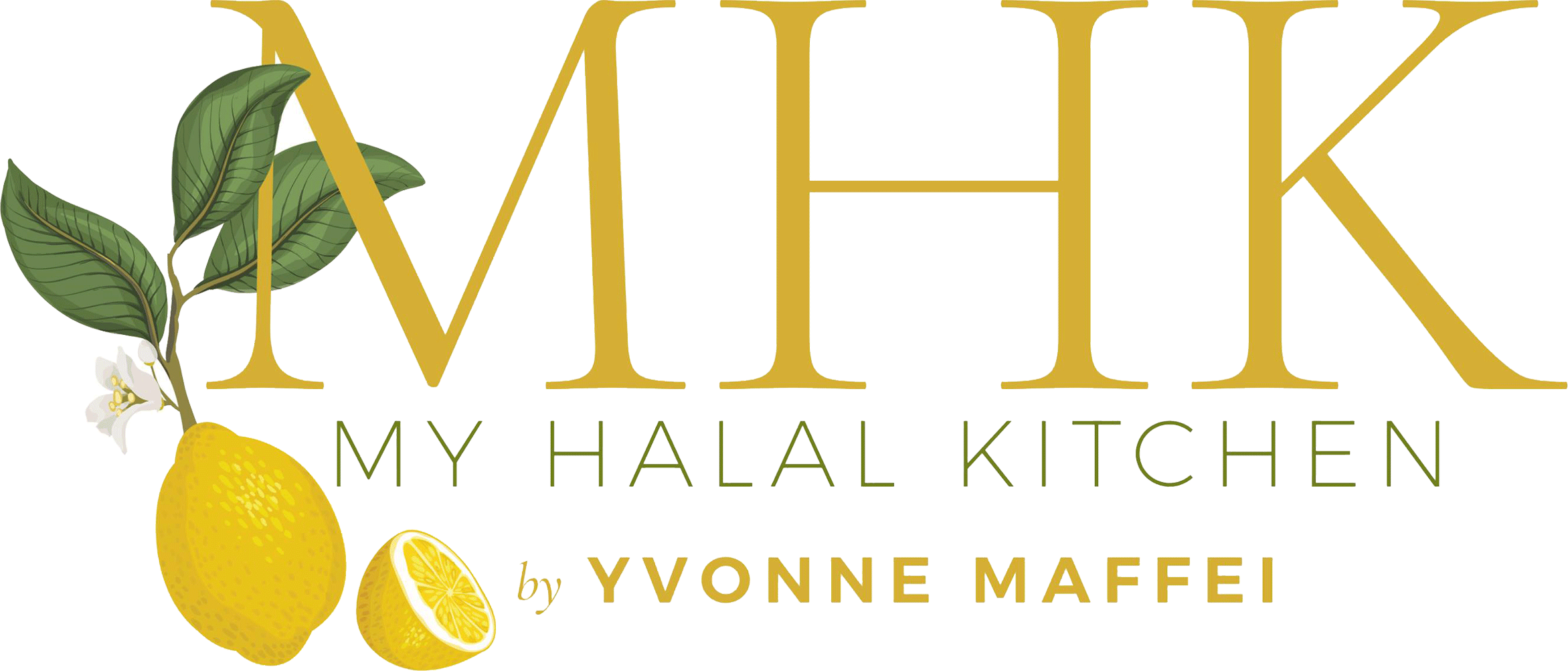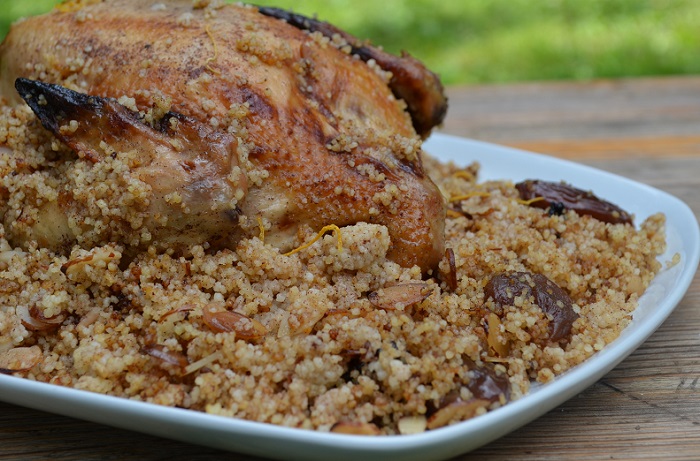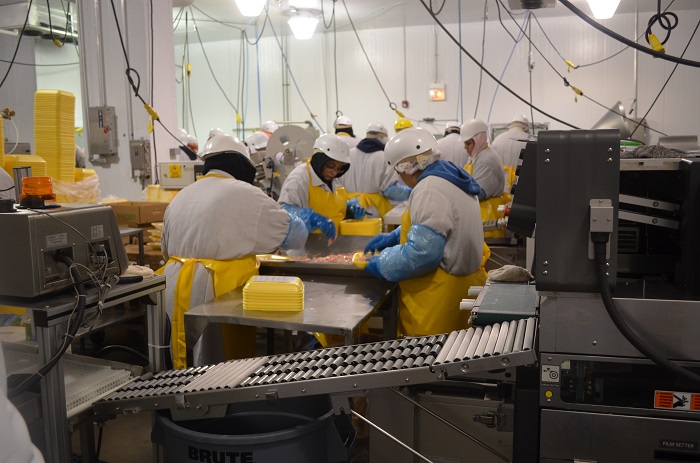10 Halal Foods in the Quran

There are many beautiful (Halal, or “permissible“) foods mentioned in the Holy Quran, many of which you will often see at the table of Muslims around the world.. In this post we will delve into the ten foods Muslims are permitted to eat according to the Quran’s teachings.
This is important because the principles of Halal play a very important role in the life and practice of every faithful Muslim. It determines what they purchase at the grocery store, what goes on the dinner table, and even what they might order at a restaurant. Understanding these guidelines helps ensure that Islamic dietary practices are followed.
First, let’s answer the most important question:
What is Halal Food?
Halal is an Arabic word which means “permissible.” In an Islamic context, Halal describes that which is permissible under the Sharia (Islamic law), more often than not regarding food and behaviour. In many an instance, following Halal guidelines is a way for many Muslims to ensure that they lead a life that is pure and faithful to God, Allah.
Some basic rules of Halal food include the prohibition of consuming pork or anything deriving from pigs, as well as the use of alcohol. Halal meat must be from a Halal animal (i.e. chicken, duck, goat, cow, lamb) that has been sacrificed in a particular way, with the name of God (Allah) recited in the process.
According to Islam, the sacrificing of an animal is done in the name of Allah and by the norm specified for that particular type of meat. When this is done, the meat is described as “zabiha” or “dhabiha“.
In the Holy Quran, Allah says:
قُلْ لَّاۗ اَجِدُ فِيْ مَاۗ اُوْحِيَ اِلَيَّ مُحَرَّمًا عَلٰي طَاعِمٍ يَّطْعَمُہٗۗ اِلَّاۗ اَنْ يَّكُوْنَ مَيْتَۃً اَوْ دَمًا مَّسْفُوْحًا اَوْ لَحْمَ خِنْزِيْرٍ فَاِنَّہٗ رِجْسٌ اَوْ فِسْقًا اُہِلَّ لِغَيْرِ اللہِ بِہٖ۰ۚ فَمَنِ اضْطُرَّ غَيْرَ بَاغٍ وَّلَا عَادٍ فَاِنَّ رَبَّكَ غَفُوْرٌ رَّحِيْمٌ۱۴۵
You tell them: “In all the commands revealed to me, I find nothing which men have been forbidden to eat except carrion and running blood and flesh of the swine for it is unclear, or meat consecrated in the name of some other than God, which is profane. But if one is constrained to eat of these without craving or reverting to it, then surely your Lord is forgiving and kind.”
Al-Quran 6:145 (Al-Anam)
The Holy Quran, which is the holy guidebook for all Muslims, provides overall guidance on Halal foods. It does not really list each and every food to be consumed, but it gives a very good framework. In essence, there are way more foods that are Halal (permissible) than are Haram (prohibited). For example, Muslims can eat a large variety of meat, seafood, dairy, fruits, and vegetables.
It is through understanding the basics that you can choose things that are in line with Islamic teaching. Whether you are a Muslim or you are just interested in the Halal way of living, this general guide from the Quran definitely comes in handy in one’s daily life.
Islamic teachings also recommend reciting certain Du’as (supplications) before starting a meal. You can read the dua before eating and others, or simply say “Bismillah” (in the name of God) just before eating.
10 Halal Foods in the Quran
Here are ten foods mentioned in the Quran and an exploration of why they’re valued in Islamic tradition and how they’re used in everyday life.
- Honey
Honey is well known in the Quran for being sweet and deliciously healthy. In the Quran, Surah An-Nahal (16:68 and 16:69) mentions that honey comes from bees’ bellies. Honey is a natural energy source and an antibiotic; thus, it becomes a household element in most Islamic homes. It is usually taken in drinks or desserts as a sweetener to resolve minor illnesses.
- Dates
Another well-known type of halal food referred to in the Quran is dates. In Surah Maryam (19:25), there’s a story where Maryam A.S is asked to shake a palm tree, resulting in ripe dates falling. Dates mark people’s hospitality and are usually used to break the fast during Ramadan, specifically, Iftar. They are highly fibrous, rich in natural sugars, and give immediate energy.
- Olives
Olives do have a unique space within the realms of Islamic culture. In Surah An-Nur (24:35), the olive tree is termed “blessed.” Olives and olive oil are used in cooking and cooking food, serving as a very healthy way of fats. Similarly, olive oil is sometimes used for some Islamic practices due to its cleansing nature. People can eat olives as a snack or add them to different food recipes to enhance the flavors.
- Milk
In Surah An-Nahal (16:66), milk is tackled as belonging to the class of pure things. It is categorized as a drink from the midst of “digested food and blood,” yet it is pure and good. Milk is an essential and significant source of calcium and protein, so it is always included in breakfast and other meals. It is also used in various desserts and beverages.
- Grapes
The Quran itself refers to grapes in Surah Al-Baqarah (2:266), among the gardens, which are many in number. Grapes can be eaten in a fresh state or sun-dried to become raisins. Grapes are high in antioxidants and are used to make juice, a favorite non-alcoholic beverage Muslims consume. Besides, they form a healthy snack and can be included in several foods.
- Pomegranate
For Muslims, the pomegranate is considered a fruit from paradise, as described in Surah Ar-Rahman (55:68). It is trendy today, especially with its bright red seeds and sweet-tart flavor. Pomegranates are highly nutritious and contain many antioxidants and vitamins. They are often eaten plainly or squeezed into juice but can also be included in salads and desserts.
- Fish
Although some schools of thought may differ on the types of seafood permitted to eat, most seafood, if not all, is considered Halal. In Surah Al-Kahf (18:61 and 18:62), the story of fish proves that one can eat it. Fish is a bountiful source of omega-3 fatty acids and is valued for lean protein content. Muslims enjoy a variety of seafood dishes, from grilled fish to seafood stews.
- Vegetables
The Holy Quran has designated the role of vegetables within the diet in chapter 2, verse (2:61). Vegetables are very versatile in nature and are considered a part of a balanced diet. They are, by and large, a good source of fiber, vitamins, and minerals, which is why they make for a healthy component of the Muslim diet. Every day, vegetables such as carrots, cucumbers, and tomatoes are used to prepare salads and dishes.
- Lentils
Lentils are referred to in Surah Al-Baqarah (2:61); therefore, the pulse is significant in Islamic dishes. More so, it is an acceptable substitute for the source of obtaining plant proteins, and it is used in almost all kinds of soups and stews. Being cheap and versatile, they give a filling answer to the meal. Lentils are one of the most common ingredients in most homes of Muslims, especially in making vegetarian and vegan dishes.
- Meat (From Halal Animals)
The Quran further explains the meat of Halal animals in Surah Al-Ma’idah (5:1). Meat is considered halal when taken from properly slaughtered animals in the name of Allah. The process makes the meat permissible. It includes the meat of sheep, cows, and chickens, even camels. The meat of an animal goes into the preparation of almost all kinds of traditional Islamic foods and typical dishes such as kebabs and biryani.
Conclusion
In other words, the Quran offers clearly defined Halal food provisions and provides many options for enjoying it. From the sweet honey and dates to the nutritious milk and the meat taken from those animals, all these give a variety that can be consumed as per the teachings of the Quran. This understanding helps Muslims make dietary decisions that align with their faith.
Whether you are a Muslim or want to know more about the practice of Halal, knowing these 10 Halal foods gives insight into a rich tradition. They are the surest way to a balanced and healthy diet, which, of course, is not only suitable for religious reasons but also a delightful experience. Thank you for taking this journey into Halal foods with us.







Responses